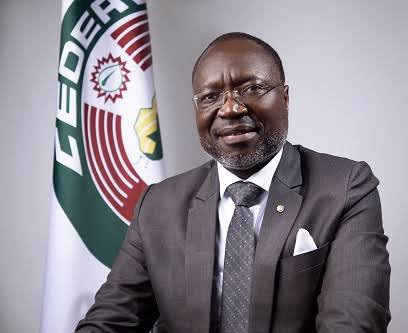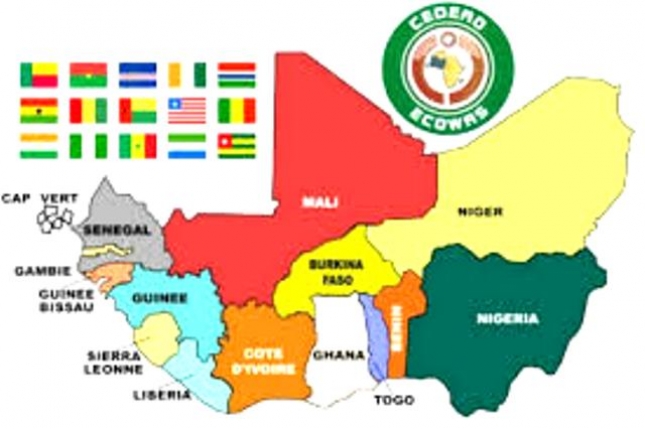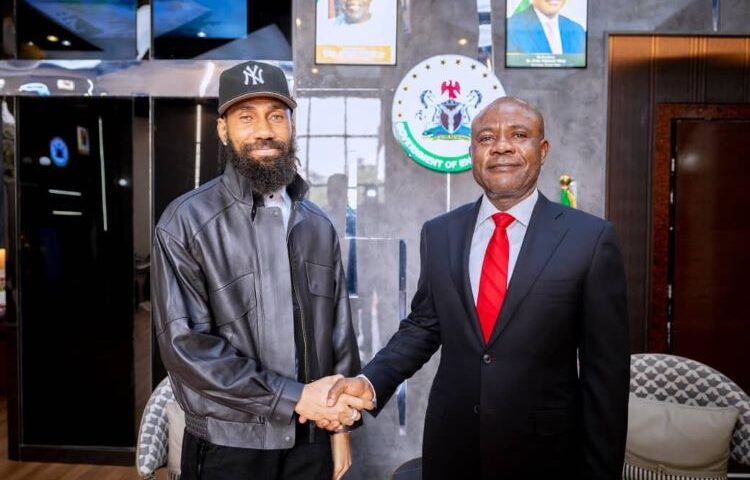By Paul Ejime
The Economic Community of West African States (ECOWAS), one of Africa’s foremost Regional Economic Communities (RECs) clocked 48 years on 28th May 2023.

The late Prof Adebayo Adedeji of Nigeria, who played a pivotal role in the formation of ECOWAS, which earned him the title of “Mr ECOWAS,” had in an interview with this writer at Ijebu-Ode, his hometown in Western Nigeria, recalled that the Treaty of Lagos was one of the few legal unification instruments initialled by an unprecedented number of heads of state at a sitting.
As Commissioner (Minister) for Economic Planning and Reconstruction (1971-75), Adedeji had received the marching orders from Nigeria’s then Military Head of State, Gen. Yakubu Gowon, to midwife the birthing of ECOWAS. This was shortly after Nigeria’s civil war of 1968-70.
Prof Adedeji, a seasoned strategist, and development pioneer picked up the gauntlet and went to work shuttling across capitals in the sub-region. He received tremendous support from his Togolese counterpart, Edem Kodjo, who later became Secretary-General of the Organisation of African Unity (OAU), and who also got a similar remit as Adedeji from Togolese former President Gen. Gnassingbé Eyadéma.
Such was the zeal, commitment and resolve of the ECOWAS founding fathers that they did not allow cosmetic colonial barriers of language, colonial history, or orientation to put them asunder in actualising their dream of a pan-African regional integration.
However, some five decades on, the regional bloc is still struggling with almost the same or similar challenges that nearly asphyxiated it shortly after take-off.
By 1979 a civil war had broken out in Liberia, followed by neighbouring Sierra Leone in 1990, and other countries in tow, forcing ECOWAS, originally set up to foster economic development to inject peace and security in the regional integration agenda.
No doubt, the organisation has recorded some gains or achievements, but the story in the past decade is one of retrogression, especially in democratic governance in the region.
For instance, there have been at least eight failed or successful coups in the past three years with three of the 15 ECOWAS member States – Mali, Guinea, and Burkina Faso – now under military dictatorships.
There is even a worrying concern that going by the undemocratic disposition of some leaders and political elite in the politically restive region associated with a dubious reputation as a “coup zone,” more member States could follow the infamous examples of the three deviant nations.
The root causes of political conflicts and instability include bad governance, corruption, economic mismanagement, cronyism, election rigging, violation of human rights of citizens, clamping down on opposition and narrowing the democratic space, and mindless alteration of electoral laws and national constitutions for tenure elongation, among others.
At the just-concluded Banjul International Conference of the Community Court of Justice, one of the ECOWAS institutions, participants recommended some tough measures, including the criminalisation of unconstitutional change of government in the region. However, the major problem is not lack of protocols or legal instruments, but the political will of the leaders to implement the texts or comply with regional Treaty Obligations.
For instance, the ECOWAS 2001 Supplementary Protocol on Democracy and Good Governance is unambiguous on “Zero Tolerance” for obtaining or retaining power through unconstitutional means, but implementation of this protocol seems preoccupied with military takeover of governments alone.
While military coups are condemnable and can never be justified since the role of the armed forces is for the defence and protection of national sovereignty, politicians, political adventurers, or mercenaries who subvert constitutional rule in whatever form, must also be subjected to the same condemnation and treatment as coup plotters.
And that is where the Malabo Protocol comes in. Unfortunately, since its adoption in 2014, no African country has ratified, let alone domesticate or implement the protocol, which has expanded the jurisdiction of the African Court on Human and Peoples’ Rights (ACHPR) to deal with crimes under international law and transnational crimes.
It is generally agreed that arraigning culprits before this Court and meting out appropriate punishments will serve as a deterrent against crimes such as unconstitutional change of government in Africa.
But even when the protocol is ratified, its implementation will still depend on the political will and sincerity of governments and political leaders, as a tool against undemocratic practices.
Also, election has since become a major source of political conflicts in the region. At the moment, world attention is focused on Nigeria, the regional powerhouse following the legal challenge mounted by opposition parties against the outcome of the 25 February 2023.
There is also some concern over countries where elections are due to be held in the region, such Senegal, Sierra Leone, The Gambia, Togo, Benin Republic, and Liberia.
The other regional threat is insecurity, terrorism, religious extremism and the multiplicity of armed groups and separatist insurgencies. Some home-grown terrorist groups collaborating with foreign counterparts to launch sporadic deadly attacks causing havoc from the Sahel to the ECOWAS region.
High unemployment rates, especially among the youths and economic hardships are also forcing thousands of ECOWAS citizens to flee the region, including through perilous routes to Europe for so-called greener pastures. At the same time, the emigration of skilled labour or so-called brain-drain, is taking a dangerous toll on the progress and economic development of the region.
In his anniversary message to staff, Dr Omar Alieu Touray, President of the ECOWAS Commission said: “The 4×4 Strategic Objectives of the ECOWAS Management were designed to respond to the challenges in our community and exploit opportunities for growth and development. “
The strategies are enhanced peace and security; good governance and political stability; deepening regional integration and inclusive and sustainable development.
“For 48 years…, our sense of community has remained solid in the face of challenges, and our commitment for inclusive and sustainable development has remained strong, ”Dr Touray added.
In summary, the management of the ECOWAS Commission must work with regional leaders to refocus the organisation on the path to the realisation of the overarching dreams of the Community founding fathers, and for the regional bloc to regain its glory as Africa’s leading REC.
The fact that citizens of the 15 ECOWAS member States still see themselves today as belonging to one community with the same aspiration and a combined population of more than 400 million is positive, but can that justify the huge human and financial investments in the regional integration project?
ECOWAS has been the only region in Africa where citizens can visit and stay in a country other than their own for at least 90 days without a visa under its flagship Protocol on Free Movement of Persons, Rights to Residence and Establishment.
But even that protocol is yearning for urgent fine tuning in its implementation, given that some member States now charge Community citizens compulsory “airport levy,” in violation of Community protocols.
Moving forward, ECOWAS has to work with member States to improve governance at all levels, ensure political stability, harmonization of national policies, laws, and regulations for the consolidation of regional integration and economic prosperity.
Member States must also respect treaty obligations, with the same set of rules applied to all violators of regional instruments and protocols be they civilians, soldiers, or mercenaries.
…Paul Ejime is a Global Affairs Analyst and Consultant on Strategic Communications, Media Development and Governance Issues, including Peace & Security and Elections.





